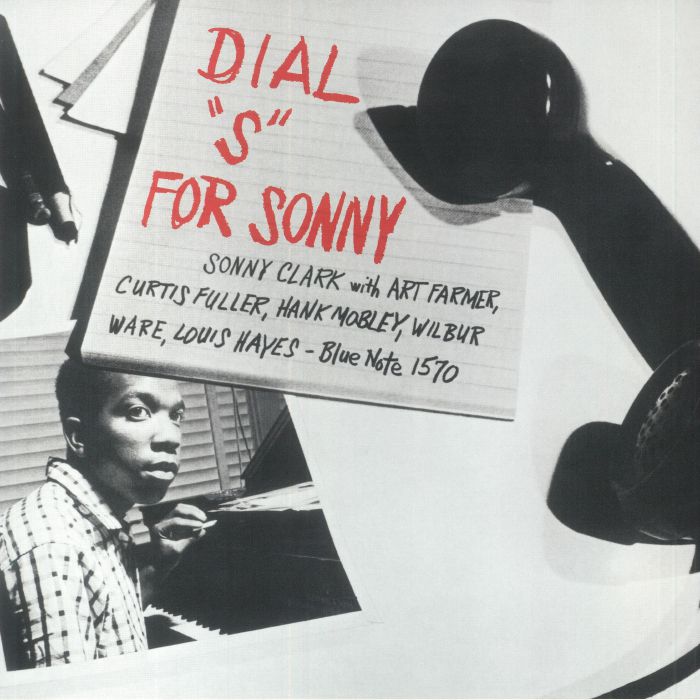Dusted Down – Sonny Clark – Dial “S” for Sonny
Underrated jazz classic back on the market

1957 was a big year for Blue Note Records. On top of releasing John Coltrane’s first major solo outing, Blue Train, the label released around 47 recordings – an impressive feat considering it was managed for the most part by just two men.
But amidst this slew of records was Pennsylvania-born pianist Sonny Clark’s first album as leader, Dial “S” for Sonny. Prior to this collection of four originals and two standards, Clark had been employed as a sideman to many figures of the East Coast’s growing harp bop idiom, working alongside the likes of Coltrane, Hank Mobley, Sonny Rollins, and Lou Donaldson. Clark obviously attracted attention for his quietly energetic, buoyant style but also for his reliability and keen understanding of his role within the compositions.
As accompanist, he was never imposing, content to let his playing support the lead with subtle elaborations. Indeed, even on his first outing as leader, where one might expect his playing to be more overtly expressive, Clark’s improvisations remain subtle and pleasing, never straying from the sense of cool he perhaps developed working on the West Coast. As trumpeter Art Farmer (who plays on this record) remarked, “a primary quality in Sonny Clark’s playing is that there is no strain in it”. This is a feature that reveals itself throughout Dial “S” for Sonny.
Beginning with the title track, we have a lighthearted, typically swinging hard-bop cut. Following solos by Art Farmer (trumpet), Curtis Fuller (trombone), and Hank Mobley (tenor saxophone), Clark enters with a perfect demonstration of his subtle, intricate soloing. While the right hand weaves elaborate melodies, the left’s phrasing is almost imperceptible, a diversion from the punchy style of one of his major influences, Bud Powell. Following on, “Bootin’ It” is another original with a similar tone to the opener. On this slightly faster track, though Clark’s playing is once again quiet and laidback, the horns from Farmer, Fuller, and Mobley add a fiery tone to the compositions.
“It Could Happen To You” is a beautiful change of pace from the swinging, jaunty bop of the previous tracks. The standard, originally written by Jimmy Van Heusen, is a slow-burning, melancholic piece. Curtis Fuller’s solo on the back-end strikes a warm tone, ending the track in moving style. We then return to the style that Clark was clearly most comfortable composing in: breezy hard-bop. Like the first two tracks, this strikes a similarly upbeat tone. This sense of Clark’s lack of willingness to go beyond this comfort zone is perhaps the only possible frustration for some listeners. However, though it is reasonable to claim that he occasionally sounds like an accompanist on his own tracks, arguably this is simply a byproduct of his naturally subdued style.
A technically challenging composition comes next with the fast-paced bop, “Shoutin’ On A Riff”. It’s a great display of each musician’s virtuosity, especially considering it’s the horn players’ final contribution – “Love Walked In” leaves the horns out completely. The George Gershwin-penned track consists of piano, Wilbur Ware’s bass, and Louis Hayes’ drum work, allowing Clark a bit more space to breathe. The result is a highlight of the record, a beautiful, effortlessly cool track.
Thus, although Dial “S” for Sonny is often lost amidst the slew of hard bop releases from the late 50s, it remains a fascinating insight into the creative direction of one of the more prolific jazz pianists of his era. Sadly, after four more years of well-received output, Clark died in 1963 at the age of 31. The pianist was an enormous figure of the hard-bop era and Dial “S” for Sonny is a vital release for any of the genre’s fans.
Noah Sparkes